
Jonathan Lambert was a staff writer covering biological sciences at Science News from 2019 to 2021. He earned a master’s degree from Cornell University studying how a bizarre day-long mating ritual helped accelerate speciation in a group of Hawaiian crickets. A summer at the Dallas Morning News as a AAAS Mass Media fellow sparked a pivot from biologist to science journalist. He previously wrote for Quanta Magazine, NPR, and Nature News.

Trustworthy journalism comes at a price.
Scientists and journalists share a core belief in questioning, observing and verifying to reach the truth. Science News reports on crucial research and discovery across science disciplines. We need your financial support to make it happen – every contribution makes a difference.
All Stories by Jonathan Lambert
-
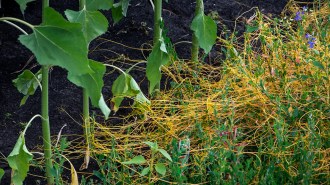 Life
LifeThis parasitic plant eavesdrops on its host to know when to flower
Dodder plants have no leaves to sense when to bloom, so the parasites rely on a chemical cue from their hosts instead.
-
 Microbes
MicrobesIf bacteria band together, they can survive for years in space
Tiny clumps of bacteria can survive at least three years in outer space, raising the prospect of interplanetary travel by microbial life.
-
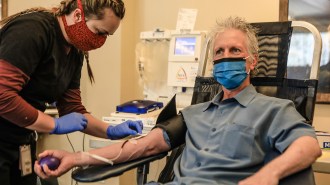 Health & Medicine
Health & MedicineCOVID-19 plasma treatments may be safe, but we don’t know if they work
Blood plasma from COVID-19 survivors can be used to treat hospitalized patients, FDA says, but researchers question how well it works.
-
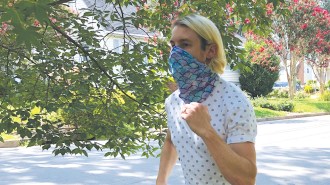 Health & Medicine
Health & Medicine4 reasons you shouldn’t trash your neck gaiter based on the new mask study
Despite news coverage to the contrary, the study was meant to figure out how to evaluate masks, not actually do the comparison.
-
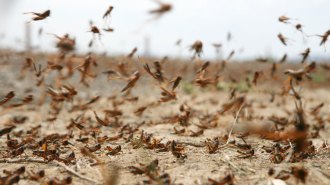 Life
LifeA single molecule may entice normally solitary locusts to form massive swarms
Scientists pinpoint a compound emitted by locusts that could inform new ways of controlling the pests.
-
 Climate
ClimateEmissions dropped during the COVID-19 pandemic. The climate impact won’t last
New estimates suggest coronavirus shutdowns cut global carbon dioxide emissions from fossil fuels by nearly 30 percent, on average.
-
 Health & Medicine
Health & MedicineFive big questions about when and how to open schools amid COVID-19
Researchers weigh in on how to get children back into classrooms in a low-risk way.
-
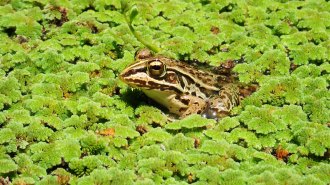 Life
LifeWater beetles can live on after being eaten and excreted by a frog
After being eaten by a frog, some water beetles can scurry through the digestive tract and emerge on the other side, alive and well.
-
 Health & Medicine
Health & MedicineMany U.S. neighborhoods with the worst air 40 years ago remain the most polluted
Air pollution has declined in the United States, but marginalized communities are still disproportionately affected despite the improvement.
-
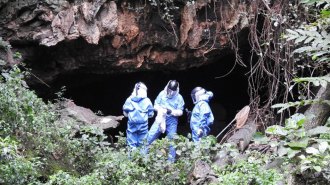 Health & Medicine
Health & MedicineTo prevent the next pandemic, we might need to cut down fewer trees
Investing in halting deforestation and limiting the wildlife trade could be a cost-effective way to reduce the risk of pandemics, a new analysis finds.
-
 Humans
HumansCompetitive hot dog eaters may be nearing humans’ max eating speed
Just how many hot dogs can one human eat in 10 minutes? New research suggests the answer is 83.
-
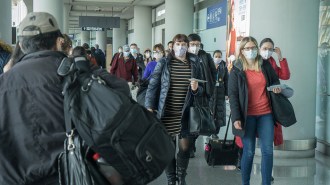 Health & Medicine
Health & MedicineWhat you need to know about the airborne transmission of COVID-19
More than 200 experts have implored the World Health Organization to acknowledge that the coronavirus can spread through the air.